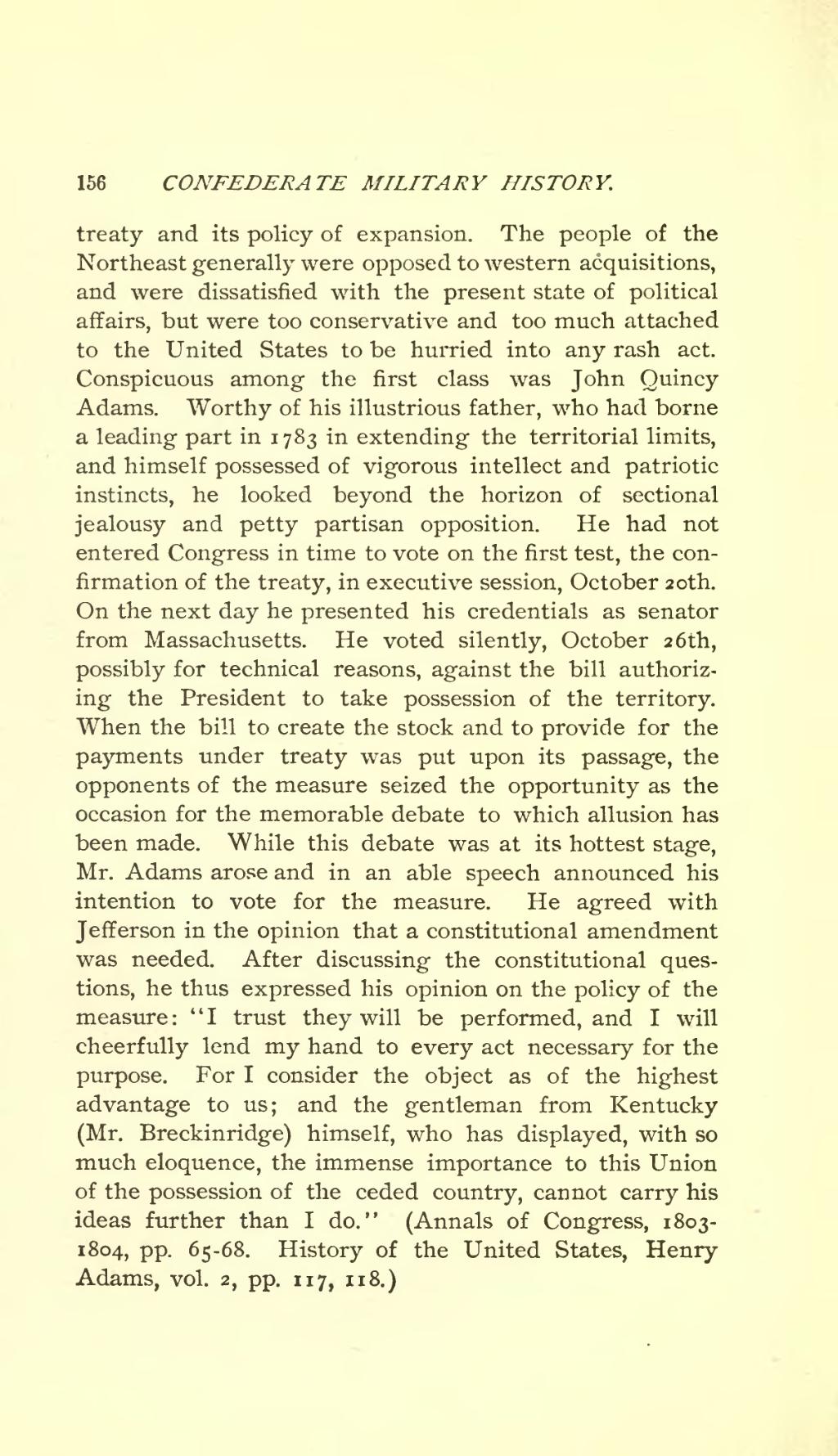treaty and its policy of expansion. The people of the Northeast generally were opposed to western acquisitions, and were dissatisfied with the present state of political affairs, but were too conservative and too much attached to the United States to be hurried into any rash act. Conspicuous among the first class was John Quincy Adams. Worthy of his illustrious father, who had borne a leading part in 1783 in extending the territorial limits, and himself possessed of vigorous intellect and patriotic instincts, he looked beyond the horizon of sectional jealousy and petty partisan opposition. He had not entered Congress in time to vote on the first test, the confirmation of the treaty, in executive session, October 20th. On the next day he presented his credentials as senator from Massachusetts. He voted silently, October 26th, possibly for technical reasons, against the bill authorizing the President to take possession of the territory. When the bill to create the stock and to provide for the payments under treaty was put upon its passage, the opponents of the measure seized the opportunity as the occasion for the memorable debate to which allusion has been made. While this debate was at its hottest stage, Mr. Adams arose and in an able speech announced his intention to vote for the measure. He agreed with Jefferson in the opinion that a constitutional amendment was needed. After discussing the constitutional questions, he thus expressed his opinion on the policy of the measure: "I trust they will be performed, and I will cheerfully lend my hand to every act necessary for the purpose. For I consider the object as of the highest advantage to us; and the gentleman from Kentucky (Mr. Breckinridge) himself, who has displayed, with so much eloquence, the immense importance to this Union of the possession of the ceded country, cannot carry his ideas further than I do." (Annals of Congress, 1803-1804, pp. 65-68. History of the United States, Henry Adams, vol. 2, pp. 117, 118.)
